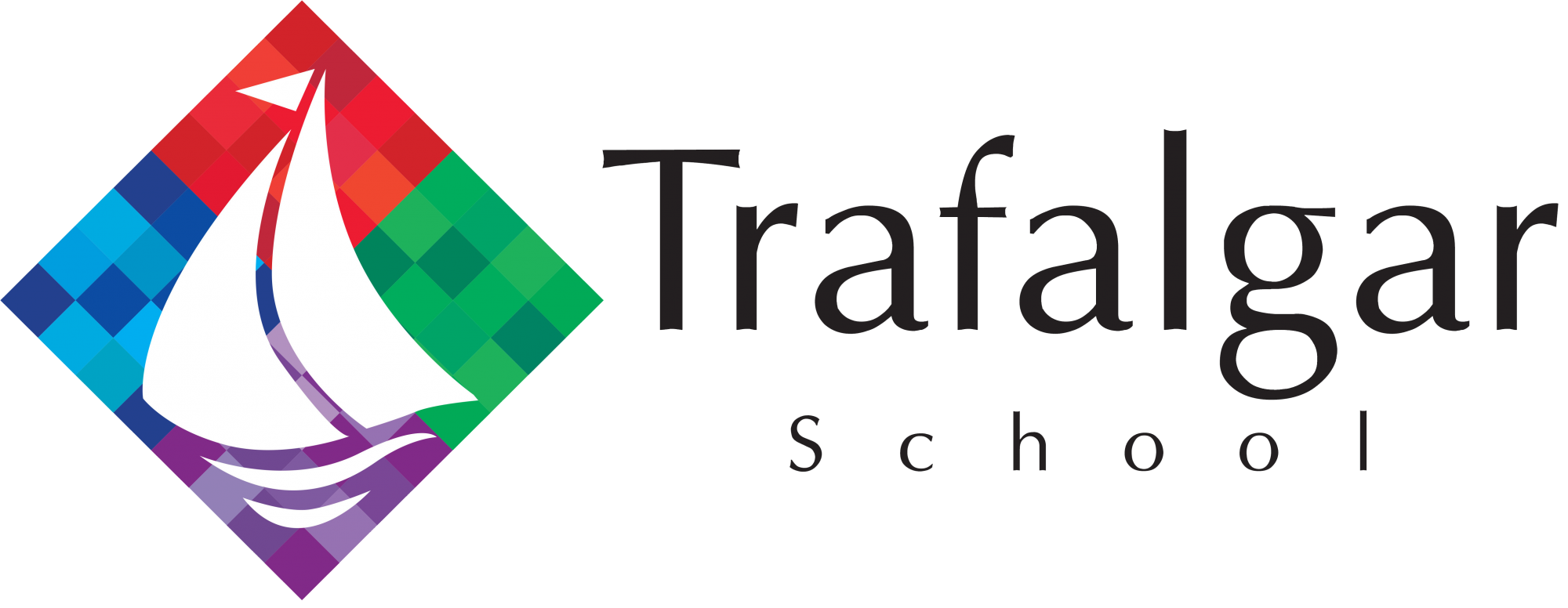English
‘The more that you read, the more that you’ll know. The more that you learn, the more places you’ll go’ - Dr Seuss.
Communication, the ability to connect cohesively and accurately is at the heart of what it means to be human. At Trafalgar School, it is this humanity which runs through the soul of the English curriculum.
Our curriculum is designed around the principle that if you cannot think it, you cannot say it and if you cannot say it, you cannot write it. The explicit teaching of thought process is a key part of our curriculum offer.
Our curriculum is centred around a rich exposure to diverse texts and uses oracy and discussion across all lessons to ensure every child can personally respond to texts we read. Our curriculum structure is planned thematically to ensure students can fully embed prior and new learning by making explicit connections between key concepts, themes, contextual factors and skills, and in turn developing critical and empathetic readers and writers who can confidently and articulately communicate and challenge ideas.
Both the skill and pleasure of reading is prioritised; DEAR time is embedded within all lessons across all year groups and reading intervention is the centre of our key stage three home learning. Our curriculum offer places the utmost importance on breadth of reading to ensure all students are given the opportunity to broaden and enrich their cultural capital. We explore a wide range of challenging and diverse texts which deal with global issues and ask our students to develop their own opinions about the past and modern world.
Cultural Capital is what brings the study of a text to life and we ensure that we offer students a wide range of extra-curricular and enrichment opportunities.
Our curriculum planning allows students to respond creatively and imaginatively to tasks as well as analytically, and our personalised approach to marking ensures that students are given constructive and meaningful feedback to accelerate progress.
The explicit teaching of tier 2 and tier 3 vocabulary is embedded throughout our units of study and is used to broaden student knowledge as well as close and surpass vocabulary gaps to ensure socioeconomic equity for all.

Key Stage 3:
|
|
Assessment Window |
Assessment Type / Topic |
|
Year 7 |
8th January - 19th January 2024
|
In-class assessment exploring language analysis of 'Once' |
|
Year 8 |
25th September - 6th October 2023
|
Extract based analysis making links across 'Noughts and Crosses' play |
|
Year 9 |
16th October - 3rd November 2023
|
Exploring how Steinbeck uses language to present a key character from 'Of Mice and Men' |
Key Stage 4:
(AQA) GCSE English Language – AQA | GCSE | English Language | Specification at a glance
(AQA) GCSE English Literature – AQA | GCSE | English Literature | Specification at a glance
|
|
Assessment Window |
Assessment Type / Topic |
|
Year 10 |
16th October - 3rd November 2023
|
A comparison - exploring the ways poets present effects of conflict |
|
Year 11 |
6th November - 17th November 2023
|
Mock exams - full Language Paper 1 and the Shakespeare section of Literature |
| Home learning | |
| Year 7 |
Year 7s need to complete 60 minutes on Reading Plus weekly- completing all the assignments under the lesson tab. |
| Year 8 |
Year 8s will continue to complete 60 minutes on Lexia weekly, until October half-term when they will switch to Reading Plus- instructions to be given in class. |
| Year 9 | Home learning is set via SENECA by individual class teachers. Additional home learning may also be set and may include extended writing and exam question practice, revision/ consolidation and embedding of knowledge. |
| Year 10 | Home learning is set via SENECA by individual class teachers. Additional home learning may also be set and may include extended writing and exam question practice, revision/ consolidation and embedding of knowledge. |
| Year 11 | Home learning is set via SENECA by individual class teachers. Additional home learning may also be set and may include extended writing and exam question practice, revision/ consolidation and embedding of knowledge. |
Extra-Curricular Opportunities
- Reading Leaders
- Film Club
- Homework Club
- UNLOC Public Speaking/ Debating club

I am proud to be the Curriculum Leader for English working with a fantastic team of staff to deliver the most enriching, diverse and engaging English curriculum for our students.
Our team are passionate about the subject of English and we strive to Inspire all our pupils through challenging, engaging and enjoyable learning experiences that maximise progress, achievement and most of all enjoyment.
As per our school values, we believe all students have the right to engage in a diverse English curriculum to shape students into well rounded human beings and global citizens. We believe in the importance of nurturing and caring for our pupils in an environment that recognises, supports, advises and guides each and every individual to become the best version of themselves. With personalised learning at the core of our curriculum, we ensure that all pupils feel valued and are therefore able to achieve their full potential.
Kirsty Watts (Director of English) kwatts.trafalgar@salterns.org
Jodie Leason-Bentley (Second in Department) jleason-bentley.trafalgar@salterns.org
Lucy Clark lclark.trafalgar@salterns.org
Alexandra Dudman adudman.trafalgar@salterns.org
Sarah Swaffer (Literacy Lead) sswaffer.trafalgar@salterns.org
Miri Fleming mfleming.trafalgar@salterns.org
Sarah Johnson sjohnson.trafalgar@salterns.org
Chloe Henshaw chenshaw.trafalgar@salterns.org
Shannon Sawicki ssawicki.trafalgar@salterns.org
Danae Morgan dmorgan.trafalgar@salterns.org
Jacqui Pashby-Taylor jpashby-taylor.trafalgar@salterns.org

